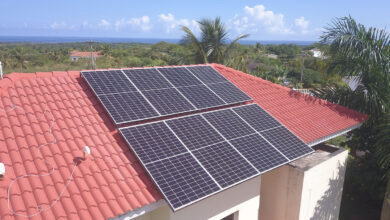Montego Bay, St James — A director, Western Hemisphere department, International Monetary Fund (IMF), Alejandro Werner says the dip in the price of oil will benefit much of the region's current accounts, so long as it doesn't inadvertently lead to the end of the PetroCaribe arrangement.
Addressing the 2014 High Level Caribbean Forum under the theme “Unlocking Economic Growth,” in Montego Bay Werner said “That might trigger obviously either an important policy adjustment in Venezuela that might imply some adjustment with PetroCaribe,” he explained.
Already, Venezuelan President Nicolas Maduro is under pressure to re-examine the PetroCaribe arrangement. Since 2005, Governments across the region entered into the PetroCaribe arrangement, a deferred oil payment deal with oil-producing Venezula.
Experts think that the dip in the price of oil from US$100 to its current US$82.70 a barrel can remain for 2015.
That could result in the oil exports from Venezuela declining by US$15 to US$20 billion annually.
The Bolivar Fuerte currency declined sharply against its US counterpart, inflation is even higher than usual and US based Standard & Poor's downgraded Venezuelan bonds to junk status.
Maduro's government has imposed food shortages and foreign currency restrictions in an attempt to achieve economic stability but this only angered citizens to protest.
“In the case in which there is more volatility in Venezuela there might be disruptions in the programme and countries should continue to prepare contingency plans in this event,” Werner said.
JAMAICA and the Caribbean need to prepare stress tests that include the halt of the PetroCaribe oil arrangement with Venezuela, said the International Monetary Fund (IMF).
Jamaica spends over US$2 billion on oil imports annually but the deferred oil payments under the PetroCaribe arrangement effectively provide some US$500 million in balance of payment support to Government annually.
“But now the distribution of probabilities have shifted to the left and you should be more careful than before and stress-test your precautionary frameworks because maybe the scenario we have been dreading for the last few years may be realised,” warned Werner.
The IMF expects the Caribbean to achieve growth rates into 2015 that are sub-par to the wider Latin American region.






